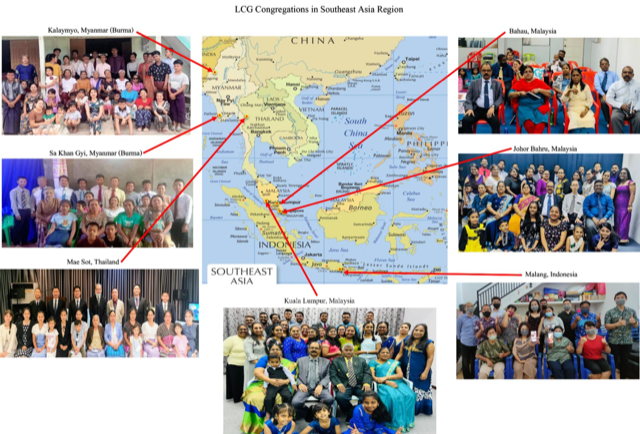Forum Summary: Dinner Etiquette
Estimated Reading Time: 5 min.
Etiquette—What Is It Good for?
Mr. Jonathan McNair began his forum by elaborating on the importance of showing respect for others, and the role that etiquette plays in fulfilling that objective.
According to the Merriam-Webster dictionary, etiquette is a set of behaviors either indicative of a high social status or enforced by an authority for an occasion. For instance, some upscale events require attendees to follow proper etiquette or they will be asked to leave. In modern times, etiquette is often associated with a bygone era of stiff ladies and gentlemen following strict social guidelines who are unable to “be themselves.” But this is not the case.
Etiquette is a blueprint for us to ensure that we do not make others uncomfortable or present ourselves in a bad light. To introduce the students to this pertinent subject, Mr. McNair showed the students two videos on dining etiquette.
Best Practices for a Dinner Engagement
The first video addressed fundamental table manners for informal, semi-formal, and formal dining environments to a limited extent. Table manners are important because they can show respect to the host or to guests. They are a way of regulating our behavior so that we do not detract from the conversation and the overall dining experience. The video outlined a scenario where one is invited to another person’s house for dinner, and it went through the event showing the different rules of etiquette for such an occasion and why they were beneficial.
But before the dinning begins, there are some preliminary rules. We should always respond to an invitation and always issue invitations. We should not show up unannounced without RSVPing or give guests too short of notice. And an important rule for modern times: Our cellphones should be put on silent before a meal and put away; we should not leave them on the table or check them excessively during the meal.
Table Manners
Here is a summary of what the video discussed on table manners: We should not excuse ourselves from the table often, and when we do, it should not be for longer than five minutes. We should eat politely, taking small bites, chewing with our mouth closed, and waiting until everyone is seated with their food before beginning to eat. We should be polite and try every type of food that the host has prepared, unless it is necessary not to due to allergies or some other limitation.
Such embarrassing moments as removing food from one’s teeth should be handled in the bathroom rather than at the table. Serving dishes should be passed to the right to avoid any mishaps, and serving utensils should always be used and not one’s own cutlery. While eating, elbows should not be on the table, and we should strive to maintain good posture, sitting all the way back in the seat, having our feet placed firmly on the ground, and avoiding leaning over our food excessively.
The video made another interesting point: Be sure not to over-explain. If one is getting up to take a phone call, he need not explain every detail of how his mother is calling him and she has had terrible health as of late and he simply cannot miss it. Instead, we should simply ask to be excused and have that be the end of it. The same applies to refusing to drink and other personal decisions.
Restaurant Etiquette
Mr. McNair then showed a second video on a similar yet unique topic: restaurant etiquette. This topic can be quite significant for many reasons, but there is one less obvious reason that is quite relevant. Many employers take interviewees out to eat to see their dining etiquette and social skills on display, and knowledge on this subject can be a professional asset. All the principles just discussed on table manners still apply, and this video brought up many good practices specific to restaurants.
The first is to budget for the event. We should know what the menu is, know how much it costs, and be prepared to pay for ourselves, even if the host says they will pay for it. If we have coats and hats, we should ask the waiter if they have a coat room they will store those garments in rather than having them by our table. If another dinner guest comes in while we are already seated, standing up to shake their hand is best practice.
If the host is paying, we should order around the same price range as them to be courteous. When a guest is ready to order, closing the menu and placing it on the table lets the waiter know that we are ready, and when dealing with the staff, we should always be polite and kind, even when pointing out that food was not correctly prepared or that some mistake occurred. If we are arranging to pay for the whole table, telling the waiter beforehand to avoid any awkward debates or hassles at the dinner table can improve the experience by removing any potential for contention.
What We Learned
After each video, Mr. McNair asked the students if they heard anything that they had never heard before. While we were somewhat familiar with many of the topics, we all found something in particular that we did not know. Mr. McNair also prompted us to state the bad practices that the videos brought up that we were guilty of doing in the past—we all had a few. Ultimately, etiquette is a set of helpful guidelines that ensures we know how to behave in order to set others at ease and present ourselves in the best light. These are not complicated or overbearing customs, but rather just good rules for life. God is not the author of confusion (1 Corinthians 14:33), and we should do all things “decently and in order” (1 Corinthians 14:40). In light of this, we will all take the chance to include etiquette in our dining experiences from now on.

Kaleb Johnson is a student in the Living Education-Charlotte Program. He graduated with a degree in Chemical Engineering from the University of Alabama in Huntsville in the spring of 2022. In addition, Kaleb enjoys writing, video-making, trying new activities (anything and everything), playing chess, and debating (it’s not arguing!) with people. He currently works in the Living Education department producing written content & videos and helping with a variety of other projects.



